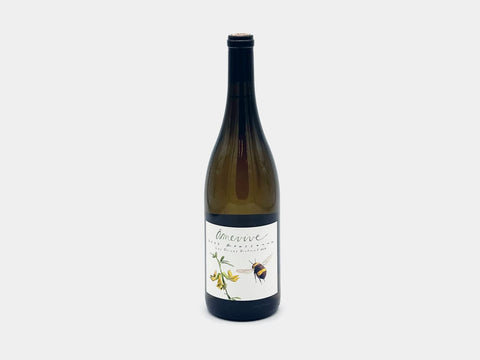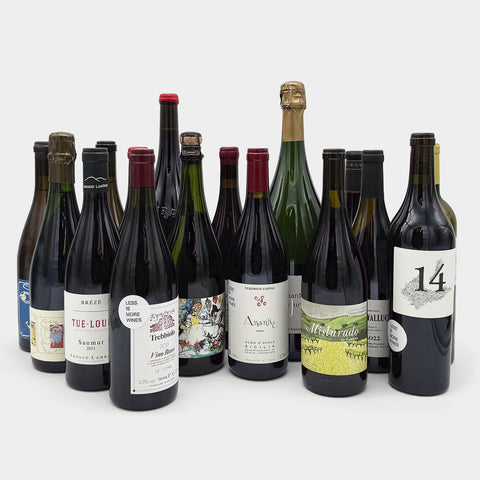

Amevive Roussanne Los Olivos 2023
AmeviveGrape: Roussanne
Vintage: 2023
Type: White
2023 Âmevive Roussanne from Los Olivos presents a captivating tasting profile. This wine opens with inviting aromas of ripe golden pear and baked apple, gracefully intertwined with delicate notes of wildflower honey, chamomile, and white tea. On the palate, it reveals a rich and textured experience, boasting a creamy mouthfeel that is beautifully balanced by a refreshing acidity. The finish is long and lingering, leaving behind subtle hints of toasted almonds and a distinct minerality, reflecting the unique terroir of the Tagabelle Vineyard. This Roussanne showcases the grape's inherent complexity, achieved through minimal-intervention winemaking and organic farming practices.
Âmevive "ahm-veev"
We are proud to lovingly tend some of the oldest vines planted and still in production in Santa Barbara County. We are committed to beyond organic farming, embracing the native ecology, integrating animals, and walking our vineyard rows daily. We believe that unmanipulated wines with energy and a sense of place only come with a deep connection to the land.
We lease and farm the Ibarra-Young Vineyard in Los Olivos District A.V.A. This vineyard was planted by Charlotte Young in 1971 and is still owned by her three daughters.
Everything on the property is own-rooted and has been farmed organically since 1993. We began leasing and farming this land at the end of 2019 and have since employed holistic, regenerative organic, and biodynamic practices to reinvigorate the soils that have been working hard for over half a century.
Our goal is to rebuild an ecosystem of native species that live alongside our vine rows, regenerate soil health, and grow the highest quality grapes this site can give. We believe the best wine grapes are grown with minimal inputs and conscious vineyard management. We reject a systematic schedule for viticulture and farming in general. We believe that by working in conjunction with nature we can increase biodiversity and soil health, minimize unnecessary sprays, minimize tractor passes and compaction, decrease water use, and reduce our carbon footprint.

